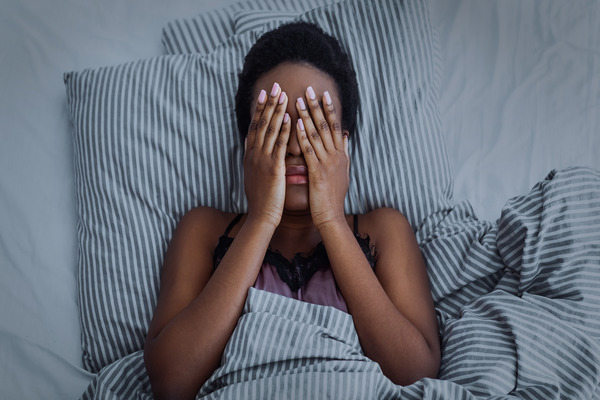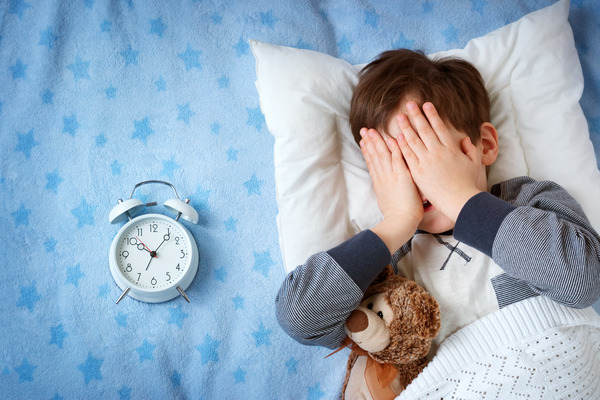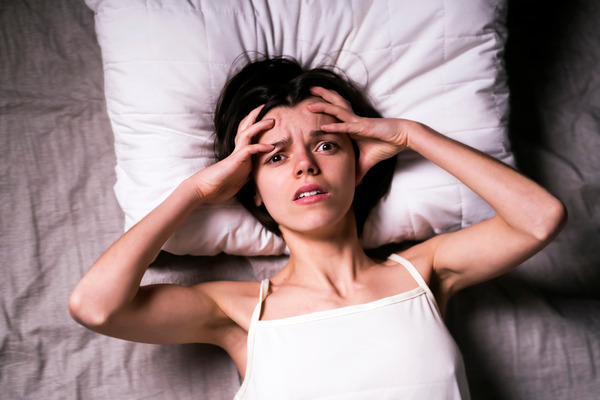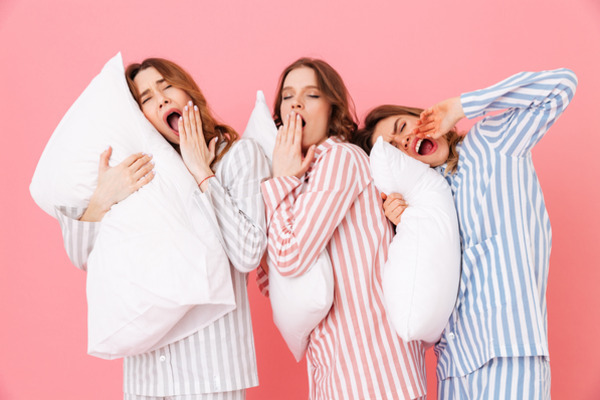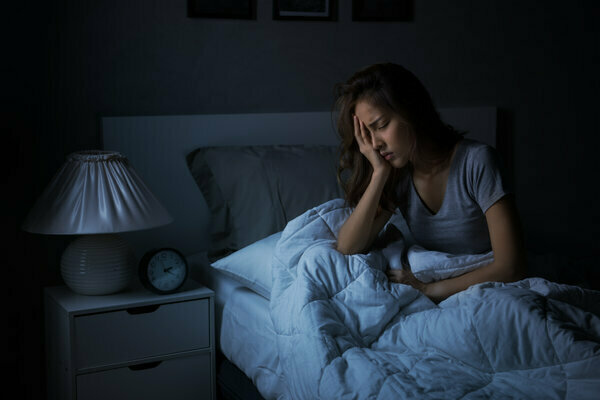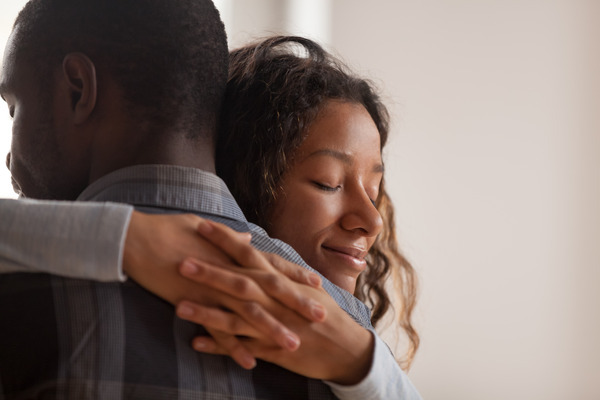Can’t stop thinking before going to sleep? You suffer from insomnia? Nighttime anxiety is one of the most common problems in society. Find the keys to combat it.
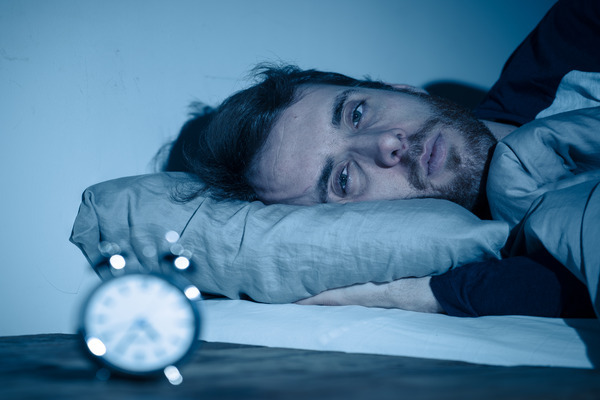
Can’t sleep because of a recurring thought? There are many people who can’t stop tossing and turning in bed because of these feelings of nervousness and worry. Although most of the time they are for rational reasons, if you suffer these types of sensations recurrently, it may be that you are facing the so-called night anxiety
What is night anxiety?
Anxiety is one of the most common problems of our times. The majority of the population has suffered from stress and anxiety at some point in their lives, which is a more than worrying fact. But what many do not know is that one of the most common times where anxiety attacks or some of the symptoms of anxiety are experienced is precisely at night.
Much research shows that anxiety and sleep deprivation go hand in hand. If you frequently have trouble sleeping, it is very possible that you experience one of the following: symptoms of an anxiety attack Treating both nighttime anxiety and sleep problems is a very important issue for your health. You can count on our professional psychologists to improve both your quality of sleep and the nighttime anxiety you may suffer. Furthermore, here we will show you some tips to know how to combat anxiety and its symptoms, as well as all the details about this disease.
Insomnia due to anxiety: What is the relationship between anxiety and insomnia?
One of the key reasons why anxiety insomnia occurs is mental hyperactivity frequently caused by the worries that come to us when we lie down in bed. So much so that one of the most common symptoms of anxiety It is precisely sleep disorders.
People who live thinking about worries frequently are often the ones who reflect on these recurring thoughts in bed. The majority of individuals who suffer from any of the types of anxiety They find it difficult to sleep. So much so that many who suffer from it end up having nighttime panic attacks as well as waking up tired day after day.
Various research indicates that anxiety, rumination and excess tiredness before going to sleep can affect even the REM phases of sleep where the most vivid dreams of the night occur. So much so that one of the symptoms of anxiety and nerves The most frequent are nocturnal nightmares. This not only affects the quality of sleep due to the effects of anxiety at night, but it is also one of the reasons why many express tiredness when they wake up.
Nighttime anxiety can go beyond being just ‘some sleep problems’. Many of the people who experience a anxiety crisis during the night they have repercussions on your mood and emotional health. That is why it is very important to ask for help if you experience these situations during the night.
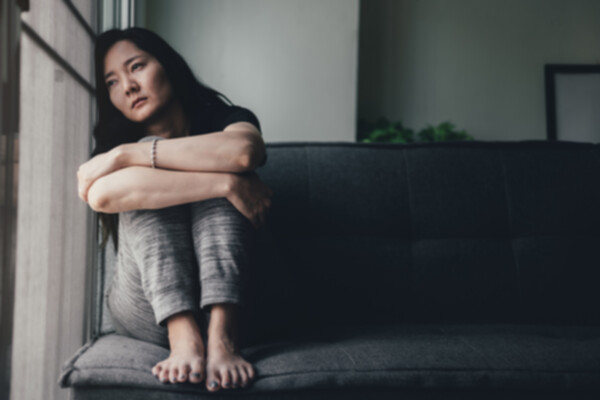
Symptoms of night anxiety
There are not many differences in the anxiety symptoms daytime with nocturnal anxiety. All individuals can experience this disease in different ways. Even so, the most common symptoms of anxiety at night are the following.
- Feelings of nervousness, restlessness, or worry
- Difficult to focus
- Trouble falling or staying asleep
- Gastrointestinal disorders
One of the most common symptoms during sleep is anxiety attacks These attacks are characterized by causing extreme and intense fear that are frequently accompanied by physical manifestations that include various characteristics.
- A feeling of impending death
- Increase in heart rate
- Difficulty breathing
- Sweating, chills, and hot flashes
- Dizziness or lightheadedness
- A feeling of detachment, as if nothing were real (feeling of unreality)
In addition to these symptoms of common anxiety, people who suffer from insomnia due to anxiety They may also feel the following effects.
- Getting up tired or getting up as if you haven’t rested
- Fear or fear of not being able to sleep
- night panic
- Nerves at night
Experiencing these symptoms of anxiety and insomnia It can cause people to suffer many consequences both personally and at work. Therefore, if you feel identified with many of these symptoms, it is important that you consult with a mental health professional.
Why do I get anxious at night?
By experimenting anxiety episodes or attacks Our body is signaling to us that we are facing danger. Currently, humans no longer face dangerous animals; now we face meetings, work and other social situations that trigger alarm mechanisms for our body. Our brain acts in the same way as when we lived in nature: it goes into action to try to find the most effective solution or the most effective escape route.
Although experiencing a occasional anxiety It is not a cause for concern (since it is a natural mechanism with which our brain protects us from threats), the reality is that insomnia due to anxiety is increasingly common in our society. The data confirms this fact and that is that according to the Anxiety and Depression Association of America (ADAA) there are more than 50 percent of adults who say that their anxiety levels affect their ability to sleep at night. So much so that anxiety has become the most common mental illness along with depression throughout the world.
In a Anxiety Attack The causes may be different for each individual. But the common feature of anxiety is that it is caused by very specific triggers known as phobias or, on the contrary, it can be caused by suffering from excessive anxiety for very long periods of time during daytime life.
How to combat insomnia due to anxiety?
Luckily anxiety is one of the most treatable diseases. Although in some cases try to reduce anxiety It can be complicated, there are many proven treatments that help you know how to calm anxiety. Any individual who has nighttime anxiety that causes problems in their daily life should see a specialist.
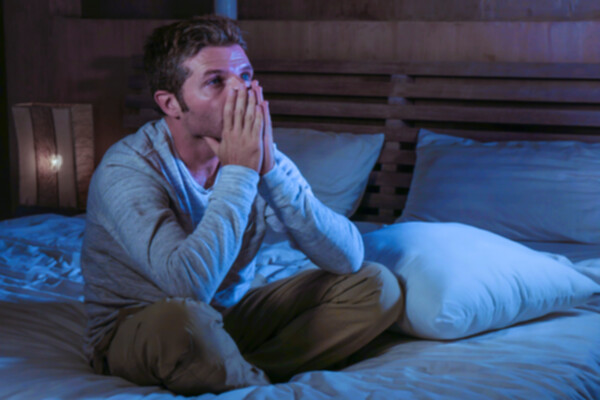
Cognitive-behavioral therapy (CBT): One of the most effective treatments for anxiety. In this type of therapy, we work to redirect negative thoughts in patients. Many studies affirm that these treatments are efficient in treating night anxiety and insomnia
- Develop healthy sleep habits: The best thing to combat anxiety is to establish a good sleep routine. Always going to sleep at the same time, as well as not overeating before going to bed or not using screens an hour before, can improve the symptoms of stress and anxiety overnight.
- Relaxation techniques: There are many tools to relax your body. Furthermore, through these exercises you not only have a weapon to know how to calm anxiety but it can also help you identify and calm all the causes of anxiety.
- Perform exercise: Although it sounds like a very common cliché, exercise can be one of the most effective remedies for anxiety. Moving your body in the morning or afternoon will help you treat both insomnia and anxiety
- Adapt your sleeping space: An effective and simple way to fall asleep in the best way will be by arranging your resting place. To do this, you can control both the light, sound and temperature to adapt it to your tastes and enjoy better sleep. You can also relax before going to bed with the help of a hot shower.
- Limit caffeine and alcohol consumption: Drinking too many stimulants like caffeine or alcohol during the day or before bed can cause your heart rate to increase and keep you awake longer than you’d like. Furthermore, excessive consumption of these substances can worsen symptoms of anxiety and nerves such as spasms while sleeping or nocturnal tachycardia. Instead, it can help you to drink hot milk or teas without theine.
- calm your mind: Practicing activities such as Mindfulness, better known as full attention meditation, as well as yoga or activities that involve better awareness of the body and mind, will be of great help for treat nighttime anxiety
- Acceptance and commitment therapy: This is another of the most effective tools against anxiety used by professional psychologists. During this anti-anxiety treatment, the therapist focuses on training the patient’s mindfulness as well as helping them take action that is based on their personal values.
Anxiety is one of the most frequent symptoms of the lifestyle we currently have. That is why perhaps many of us avoid facing it for the simple fact that it seems more and more normal to live with these symptoms. These types of thoughts can be harmful to your health since the anxiety It can have many side effects. Fighting it must be a priority if you want to live a full life.

